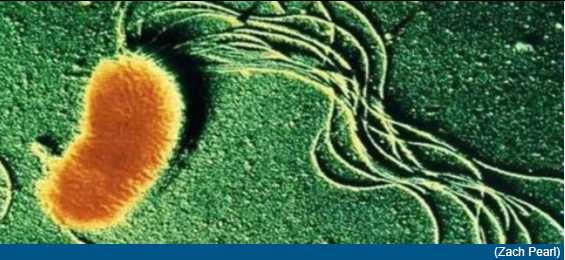A study led by Nikhil Malvankar, an assistant professor at Yale University's Microbial Science Institute in Connecticut, found that Geobacter - a ubiquitous, groundwater-dwelling bacteria "inhale" organic waste and "exhale" electrons, generating a small electric current in the process. Geobacter breathes through a "snorkel" that is called a nanowire. Though these tiny, conductive filaments are 100,000 times smaller than the width of a human hair, they can shuttle electrons hundreds to thousands of times the length of an individual Geobacter microbe's body. The study published August 17 in the journal Nature Chemical Biology, Malvankar and his colleagues has figured out how to combine that energy into a potent, microbial power grid. The study had uncovered the "secret molecule" that allows Geobacter to breathe over tremendously long distances previously unseen in bacteria. Stimulated by the electric field, the microbes assemble into dense biofilm interlinked piles of hundreds of individual microbes, moving electrons through a single shared network. When stimulated by an electric field, Geobacter produces a previously unknown nanowire made of a protein called OmcZ. It was known that bacteria could make electricity, but nobody knew the molecular structure, and this study found it. With this new research, scientists now know how to manipulate microbial nanowires to make them stronger and more conductive. @ https://www.sciencealert.com/bacteria-in-mud-breathe-through-giant-snorkels-that-conduct-electricity/amp
New research reveals a molecule that allows certain bacteria to produce electricity
Scientists Have Found The Molecule That Allows Bacteria to 'Exhale' Electricity
No comments

